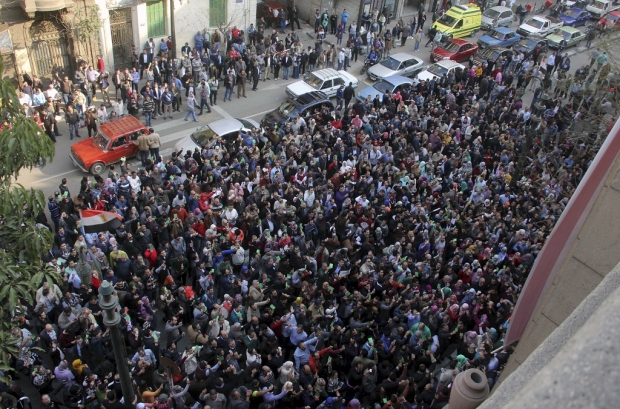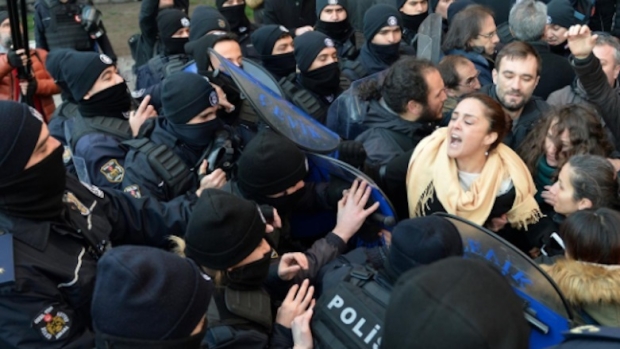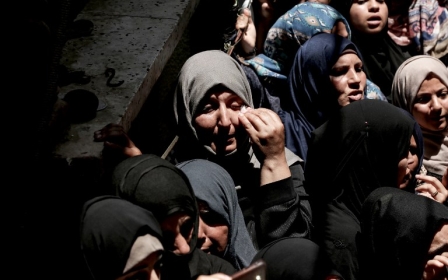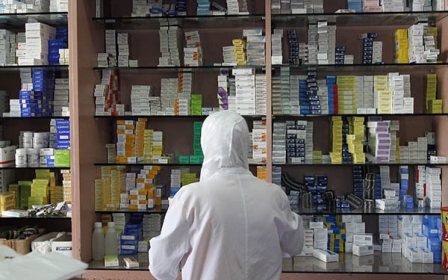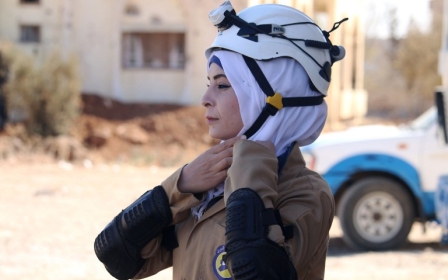Doctors in the firing line: Terrorism laws eroding right to health

When Israeli forces shot and killed Palestinian medic Razan al-Najjar in the Gaza Strip earlier this month, the international community condemned her death, sparking urgent calls to respect the inviolability of medical professionals and the care they provide in conflict zones.
It was a well-rehearsed conversation, one the international community has been having for over 150 years. States have been in consensus on the provision of impartial medical care at all times - during or outside of armed conflict - since the original Geneva Conventions of 1864.
Laws can be and are used to punish healthcare workers for carrying out their job
- UN Special Rapporteur on the Right to Health Dainius Puras
These protections have been expanded time and again since – reiterating that non-discriminatory access to healthcare is a human right, and that doctors are ethically required to provide care regardless of the recipient.
But international law experts are concerned that these deeply rooted norms have shifted in recent decades. Counterterrorism and public safety are being used to both deny healthcare to individuals who oppose a state and criminalise the medical professionals who provide it, according to a report commissioned by the United Nations special rapporteur on the right to health.
The report, released Wednesday, is the first global review of how domestic counterterrorism legislation is impacting access to healthcare. In addition to a pattern of targeting humanitarian workers during wartime, a growing number of health professionals worldwide are being arrested, threatened or attacked for providing care to individuals considered to be terrorists or enemies of a state.
“Laws can be and are used to punish healthcare workers for carrying out their job,” UN Special Rapporteur Dainius Puras told Middle East Eye. “These laws run counter to states’ international obligations under human rights law, in particular the right to health.”
Egyptian Taher Mokhtar is one of these health workers. In 2010, he began a career in emergency medicine at the age of 26 in Alexandria, Egypt. But seven years later, he was fleeing the country because of his work.
“From the turning point of the [25 January 2011] revolution, I started to participate in field hospitals to treat people who were injured by police brutality at the time, because my specialty is emergency medicine,” Mokhtar told MEE.
He was a member of Alexandria’s doctor syndicate from 2011 to 2013, treating detainees and overseeing cases of medical negligence in prisons. "In Egypt, there are no real health services for people in prison,” Mokhtar told MEE. "We think this is done intentionally by the regime against political opponents.”
Mokhtar said the syndicate was barred access to prisons following the 2013 military coup, which toppled democratically elected president Mohamed Morsi and brought Abdel Fattah el-Sisi to power.
Mokhtar participated in launching a campaign promoting healthcare access for detainees and attempted to treat detainees remotely by reviewing medical files provided by family members and sending cases to the relevant authorities.
The current way states are organising their counterterrorism laws and policies within a highly punitive, one-dimensional response to terrorism will always contravene, to one extent or another, human rights
- UN Special Rapporteur on the Right to Health Dainius Pūras
Egyptian police raided Mokhtar’s Cairo apartment on 14 January 2016 and found campaign leaflets demanding medical care in prisons, as well as detainee medical files.
Egypt’s National Security Agency accused Mokhtar of “possessing leaflets aiming to overthrow the regime” and “involvement in the preparation of protests to incite action against the state and its institutions, and to encourage people to spread chaos on 25 January”.
He was jailed in pre-trial detention for seven months, during which he said he was subjected to solitary confinement, inhumane conditions and denied legal counsel. Mokhtar was released on bail and, anticipating re-arrest, he fled to France shortly afterwards.
Mokhtar was charged under vague laws that, while unrelated to medical care, establish the provision of care to people opposing the state as grounds for prosecution. The individuals traeted range from political protesters to non-state armed groups to groups listed as terrorists, according to the UNSR report.
The existence of such laws in various countries has proliferated during the 17 years since the 11 September 2001 attacks. Between 2001 and 2014, the number of states with counterterrorism legislation rose from 31 to 109.
“UN resolutions called for aggressive laws criminalising all kinds of support to terrorism. States are responding, either through resolutions or on their own by enacting ever-broader laws with all-encompassing language, which is bringing in with it healthcare,” Dr Leonard Rubenstein of Johns Hopkins Center for Public Health and Human Rights told MEE.
Ten out of 16 countries surveyed for the report can be interpreted to include the provision of medical care as an unlawful form of support for terrorism.
Among those facing imprisonment today is Kurdish doctor Serdar Kuni. According to Physicians for Human Rights, Turkish security forces intentionally targeted healthcare workers, including Küni, who attempted to administer care during violent clashes across southeastern Turkey in 2015 and 2016.
Kuni was accused of providing medical care to members of the Kurdistan Workers’ Party (PKK), considered a terrorist organisation by the Turkish government. He was charged under Article 220(7) of the Turkish penal code for aiding and abetting a terrorist organisation, and sentenced to over four years in prison.
“It seems clear that the current way states are organising their counterterrorism laws and policies within a highly punitive, one-dimensional response to terrorism will always contravene, to one extent or another, human rights. There should not have to be a trade-off,” Puras told MEE.
Julie Hannah, member of the Human Rights Centre at the University of Essex, voiced concern that the right to access healthcare without discrimination was being undermined in the name of public security.
“This can have a chilling effect on how we look at medical care, generally, because all of sudden some people are less deserving [of healthcare] than others,” Hannah told MEE.
“It can cripple health systems for entire communities of people. It is anathema to the international human rights obligations governments are explicitly bound to respect,” she added.
International law experts continue to voice concern that counterterrorism efforts have eroded basic principles the world has long accepted in international law.
Dustin Lewis, a senior researcher at the Harvard Law School Program on International Law and Armed Conflict, told MEE that safeguarding impartial healthcare is one of the “key normative pillars of international humanitarian law.”
It can cripple health systems for entire communities of people. It is anathema to the international human rights obligations governments are explicitly bound to respect
- Julie Hannah, co-director of the Human Rights Centre at the University of Essex
“While protections for impartial medical care to an ISIS fighter or a member of Boko Haram may attract little sympathy at first glance, those safeguards represent a fundamental thread that ties the larger tapestry of legal protections in war together - not only for wounded fighters but for all of us who may, someday, unfortunately find ourselves caught in the tumult of armed conflict,” Lewis told MEE.
Puras told MEE that upholding the right to health is possible if countries revise counterterrorism and other relevant laws to explicitly say that healthcare cannot be considered a form of support to terrorism. "States must take targeted action to translate this message to security forces, including police and military," he added.
Back in his Paris apartment, Mokhtar is still connected - albeit with limitations - to a network of doctors and activists in an effort to protect the basic rights of Egyptians back at home. He wants to return home, but says the situation at present makes it “impossible”.
“As for the question of safety, of course I am safer than I was in Egypt…But I don’t know how long I will face resistance from this regime.”
This article is available in French on Middle East Eye French edition.
New MEE newsletter: Jerusalem Dispatch
Sign up to get the latest insights and analysis on Israel-Palestine, alongside Turkey Unpacked and other MEE newsletters
Middle East Eye delivers independent and unrivalled coverage and analysis of the Middle East, North Africa and beyond. To learn more about republishing this content and the associated fees, please fill out this form. More about MEE can be found here.


